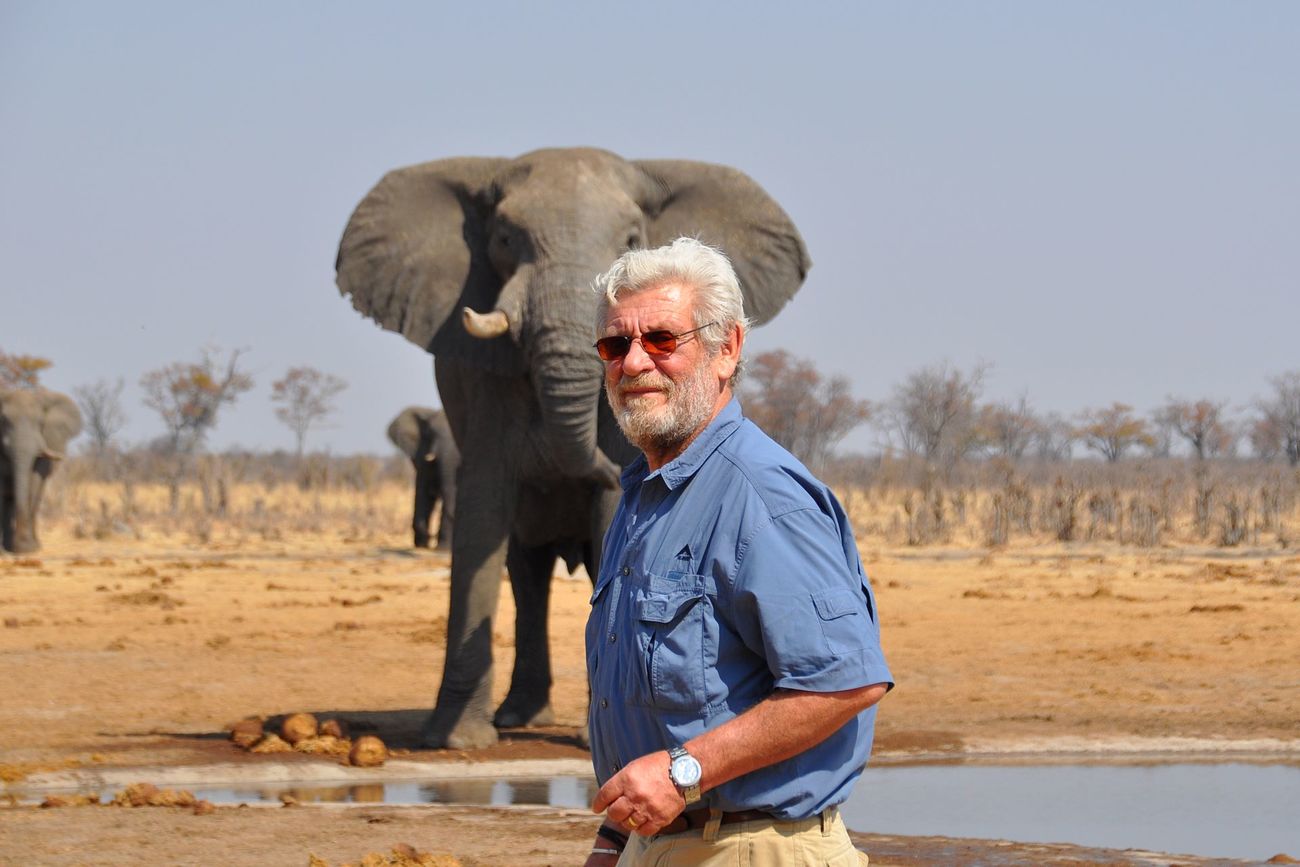Jason Bell
Executive Vice President - Strategy, Programmes & Field Operations
If there's an individual animal in distress, why would you not make every effort to try and rescue it?
Beyond the loss: Celebrating Professor Rudi’s indelible footprints

It is with a great deal of sadness that I share the tragic news that Professor Rudi van Aarde passed away suddenly on 21 July. The short answer to who Rudi was, is that he was the Director of the Conservation Ecology Research Unit (CERU) at the University of Pretoria, with whom IFAW had partnered for over 20 years.
But he’s a lot more than a job title, and he and I go way back.
He taught me at university, and our paths crossed over common goals for elephant protection in my early days at IFAW. The fact that IFAW can now pioneer one of the most ambitious global conservation initiatives of our time, Room to Roam, is thanks to Rudi and CERU’s work over the past 20 years.
He has led the most comprehensive elephant population-level research program ever conducted, which has set up conversations about implementing Room to Roam in recent years. As with IFAW’s past contributions to whale and seal science, Rudi’s work was always geared towards using science to inform conservation decision-making.
His mantra was to put science on the table, first and foremost, and then decide whether science or politics would lead the way in policy and management decisions.
For IFAW, our paths first crossed in the controversy around renewed calls for elephant culling in the Kruger National Park in the late 1990s. We quickly rallied around Rudi to put the science on the table, i.e., let’s first understand the drivers of the dynamics of Kruger’s elephants before making archaic, ill-informed decisions with serious animal welfare consequences.
Fast forward, South African National Parks adopted the recommendations by Rudi and IFAW and developed a new management plan for Kruger’s elephants based on spatial management of water in the park and taking down the fence on the Mozambique border. The elephant population stabilized in a few years, and culling was no longer a consideration.
Rudi knew that politics would drive poor management decisions in southern Africa, with calls for culling coming from Botswana, Namibia, and Zimbabwe. His, CERU and IFAW’s focus shifted to a regional one and thus started the Room to Roam journey.
The goal was simple – let’s understand the drivers of elephant population dynamics across southern Africa, home to 80% of Africa’s elephants. His vision was about what Africa should look like for elephants and people 10, 30, 50, and 100 years from now, something I often repeat regarding how we comprehend the importance of Room to Roam.
While this is saddening news, the legacy that Rudi has left behind is immeasurable.
I will say that if it wasn’t for Rudi and his passion for elephants, science, and nature, we would still be deep in the throes of the politics around elephant management in southern Africa.
He was a seeker of the truth, and if you have ever seen any of his amazing photographs you could attest to his deep spiritual connection to elephants and nature. I always told him so, and he would always groan about it.
I have spent much time with Rudi over the years, mainly in the bush, memories that I will forever cherish. I have learned an incredible amount from a friend and mentor, a larger-than-life character. IFAW will continue to honor Rudi’s legacy through our ongoing commitment to the science behind Room to Roam, an initiative that will live on as a celebration of his life.
Rest in peace, my friend.
Jason Bell
Executive Vice President - Strategy, Programmes & Field Operations
If there's an individual animal in distress, why would you not make every effort to try and rescue it?
Our work can’t get done without you. Please give what you can to help animals thrive.
Unfortunately, the browser you use is outdated and does not allow you to display the site correctly. Please install any of the modern browsers, for example:
Google Chrome Firefox Safari